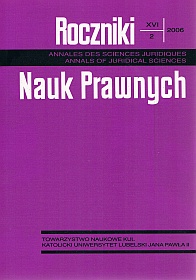The Celebration of Christian Initiation Sacraments in Eastern Catholic Churches (Reflections in the Light of Latin Church Regulations)
Abstract
According to Catechism of the Catholic Church, “Christian initiation is accomplished through three Sacraments: Baptism, which commences new life; Confirmation, which reinforces Baptism; the Eucharist, which feeds the Flesh and Blood of Christ to the disciple to transubstantiate him into Him.”
Therefore, it is only a human being who has been baptised that is able to receive the other Sacraments of the Church. The next Sacrament of Christian initiation (Confirmation – Chrismation) is intended to perfect the grace of Baptism for us to be more deeply immersed in divine filiation, to embed us in Christ, to strengthen our bonds with the Church, and then to incorporate each of us in His mission and help us proclaim Christian faith with words that will be accompanied by deeds. In the eastern tradition, “the newly baptized person is confirmed directly afterwards, and then receives the Eucharist. This tradition emphasises the unity of the three Sacraments of Christian initiation.”
Next, the Eucharist completes the initiation, and those who were raised to the dignity of royal priesthood and became like Christ through Baptism and Confirmation (Chrismation) participate in Lord's offering together with the congregation.
To sum up the above, it must be concluded that in Eastern Catholic Churches “those who were Baptised, should also receive the Chrismation Sacrament to be anointed with the Holy Spirit's seal so that they may become witnesses and co-architects of Kingdom of God.” In the Eastern Church tradition, the Eucharist is administered along with the Baptism and Chrismation, hence it usually takes place during infancy. For historical and cultural reasons, the Western Church “has neglected” this practice and the Sacraments of initiation are not administered (to children) simultaneously, but in a sequence at different times. In the East, however, this practice has persisted in an unchanged and uninterrupted manner.
Copyright (c) 2006 Roczniki Nauk Prawnych

This work is licensed under a Creative Commons Attribution-NonCommercial-NoDerivatives 4.0 International License.


